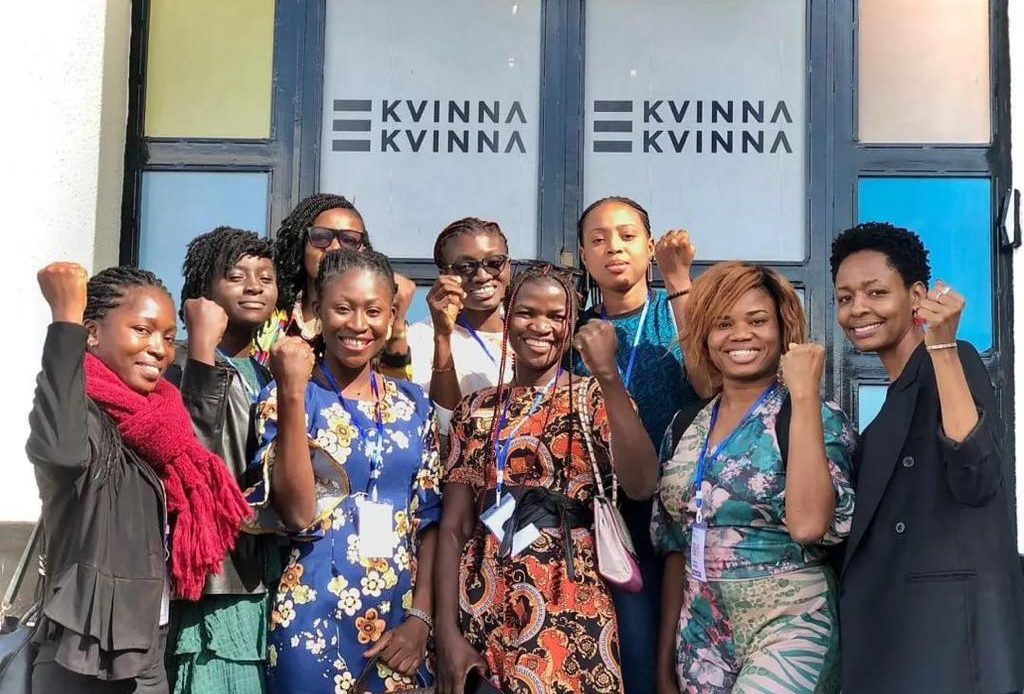Chinonso Kenneth (Lead Writer)
Although a brilliant academic student, Nmesoma Nwanganga from Abia State struggled with poor self-esteem, which led to a growing feeling of self-doubt when she was 15 years old. “I remember writing it down in a notebook that I had low self-esteem and I was also lacking inspiration,” Nmesoma said. According to a 2014 survey conducted by academic researchers on self-esteem among adolescents in Nigerian secondary schools, female respondents of all ages had lower self-esteem.
Things took a positive turn for Nmesoma when Divine Peters, a volunteer with the Youngstars Foundation brought booklets with inspirational stories about 30 women who have achieved success in their careers.
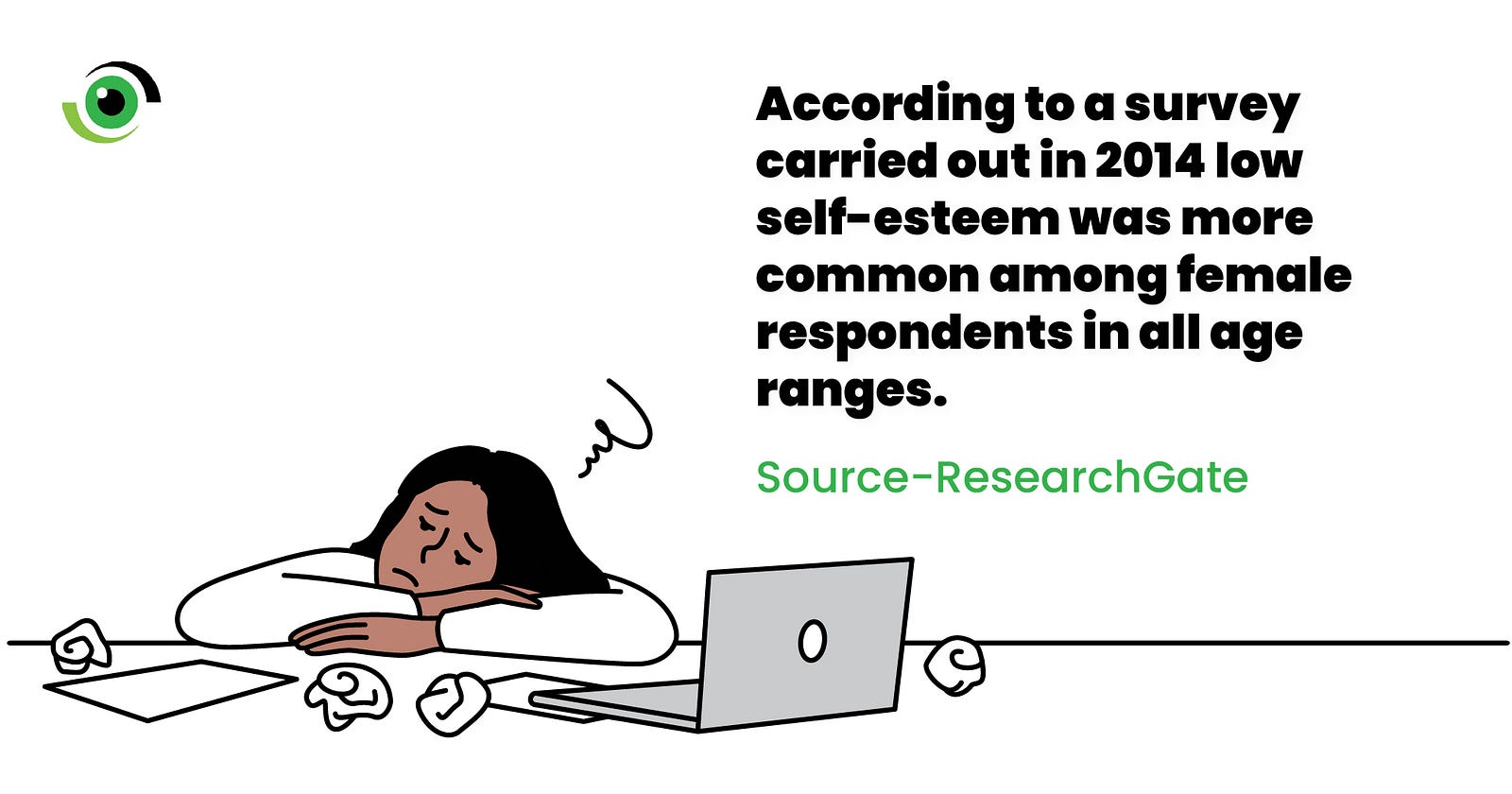
Nmesoma and other female students were given these books and asked to read one story each day for 30 days. They were then required to write about how they had been personally inspired by the stories and to establish a female leadership club in the school. “During the project, I got inspired by the story of a lady with disability who went ahead to build a successful life and business. Her story made me feel that if she could do it, then I could too,” Nmesoma recalled.
Researchers studying the relationship between gender inequality and self-esteem in Nigeria discovered that, while men are always trained for leadership positions, women are not often given similar opportunities. This reinforces gender inequality and leads to low self-esteem and confidence in many areas of their lives.
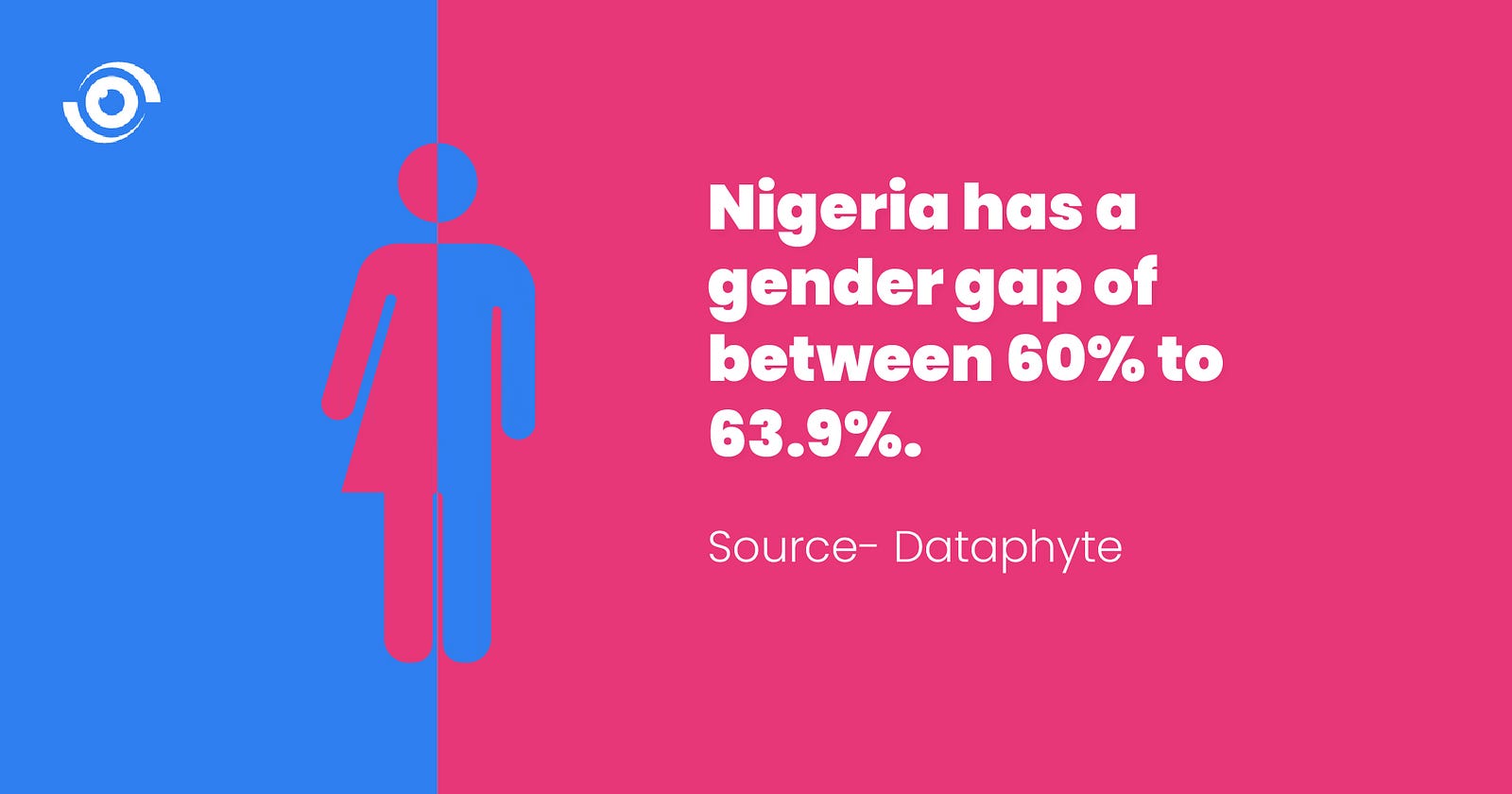
Currently, the country has a gender gap ranging from 60% to 63.9%, however, supporting women to build and regain their self-esteem and confidence can help balance the gender equality scale. This is because self-confident women are not afraid to take on leadership positions, demand their rights, or be proactive in their careers.
What’s Working
-
Reducing Maternal Mortality in Nigeria: The SHI Response
The Safer Hands Health Initiative (SHI) aims to reduce maternal mortality across the country by educating and empowering birth attendants, healthcare centers and pregnant women to use safe delivery practices. SHI partners with medical boards and area hospitals to provide free training for birth attendants and also provides sterile birthing kits to expectant mothers. So far, SHI has trained over 200 birth attendants and has distributed more than 10,000 birthing kits. Read more
Now a 19-year-old third-year law student, Nmesoma said the 30-day self-esteem programme completely transformed her perspective and significantly improved her self-esteem, sense of self-worth, and confidence. “The programme laid the foundation for the spirited mind I have now where I believe more in myself. It made me more positive, built up my self-esteem, and made me realise the greatness in being female. I no longer worry about my worth”. She said.
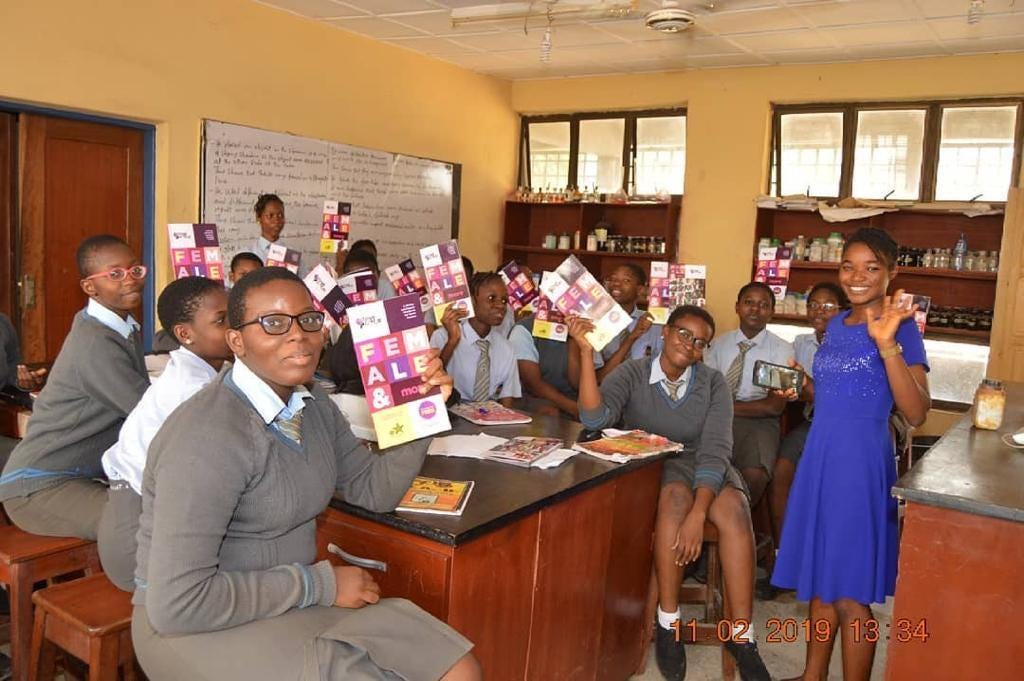
The 30 day self-esteem and leadership module
Kingsley Bangwell, founder of the Youngstars Development Initiative, also known as the Youngstars Foundation, stated that the Female and More Self-Esteem and Leadership Programme (FAM) was created in 2017 in response to the low participation of young females in the organisation’s leadership and governance programmes.
“The model was to use storytelling as an instrument. We put together a booklet that had the stories of 30 women across Africa, got volunteers to go to schools and donate these books for girls to read. At the 30 days, the students write about how they have been inspired and start a female and more club in their school,” Bangwell said.
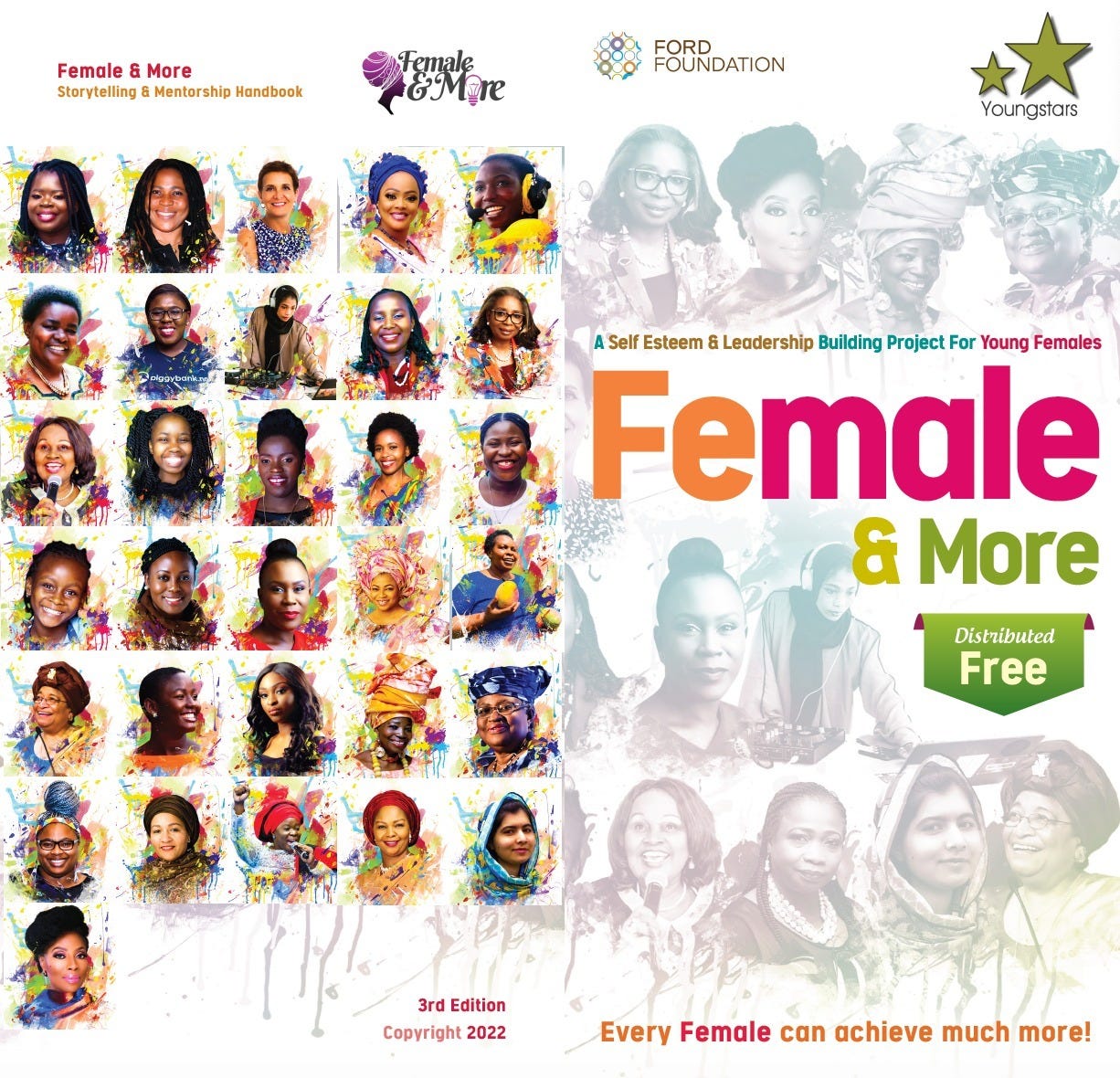
Between 2017 and 2019, 5,000 booklets containing stories of inspirational African women such as Ngozi Okonjo-Iweala, the first woman and first African to lead the World Trade Organization (WTO) as Director-General, Ellen Johnson Sirleaf, the first elected female head of state in Africa and the first female president of Liberia, Malala Yousafzai, a Pakistani female education activist and the 2014 Nobel Peace Prize laureate at the age of 17, among others, were distributed to 4,500 young girls in over 280 secondary schools across the 36 states in Nigeria. To track the impact, students were required to write down which stories inspired them and submit them back to FAM.
To expand access to the module, an online version was developed, allowing young women and girls who completed the 30-day module and implemented a social impact community project to either win a $1,000 grant or a travel exchange experience to an African country. FAM also trained participants on project management, fund raising, and reporting procedures.
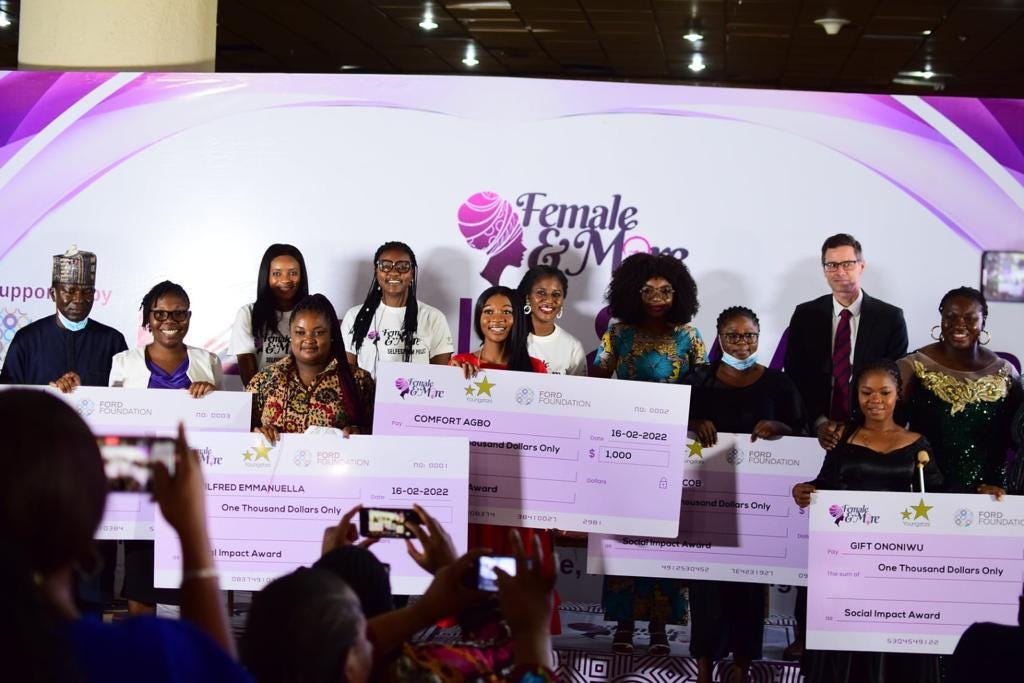
According to Bangwell, over 18,000 young females have signed up for the online module, over 4,000 have completed the module and over 200 social impact projects have been implemented by young females across South Africa, Ethiopia, Ghana, Zimbabwe, Tunisia and Egypt since 2020. Participants who completed the online module earned a leadership certificate, which FAM uses to track the number of beneficiaries. Participants who implemented a social impact programme were to prepare a comprehensive report at the end of the project, which was investigated and approved by FAM.
Grooming future leaders
Implementing these social impact community projects not only increased young girls’ self-confidence but also exposed them to practical hands-on leadership experience and project management skills, preparing them for future leadership positions.
Ofonmbuk Umoh, Founder of the Goodnews Livelihood Foundation, a beneficiary of the FAM project, stated that she received professional training in project management, fundraising and leadership for the first time in 2022. Ofonmbuk, who also won the travel exchange programme to Rwanda in 2022 (for her girl focused school-based nutrition health project in an underserved community in Akwa Ibom state) stated that the FAM self-esteem module helped boost her self-esteem.
“The self-esteem stories from FAM boosted my self-esteem. When I read the stories, I put myself in their shoes and I grew bolder to speak to more people about my NGO vision and try to do those things I was previously seeing as difficult.” Ofonmbuk said.
Blessing Alims, 22, a sexual health advocate is another beneficiary who won the exchange travel experience in 2022 for her skills empowerment project targeted at people with disabilities in her community. She said the FAM project broadened her scope of understanding of leadership, fundraising, and project management.
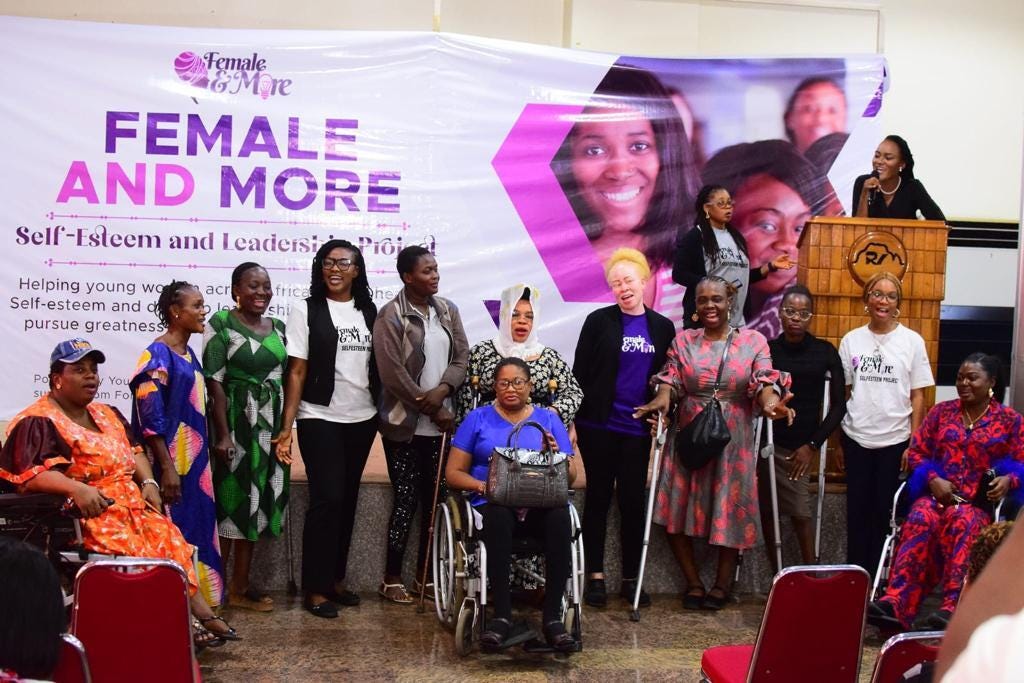
“The social impact project I did for the FAM project was the first project I implemented on my own in my community. I got the experience of how to organise a project and make it scale through and since then I have not been the same as I now feel the need to do more for my community,” Blessing said.
“Most of the time when I feel like getting inspiration, I remember the story of Victoria Kisyombe who lost her husband but that did not stop her from pursuing a successful career that supports widows and young girls. That is one story that is outstanding for me despite the ups and downs she still got back to her feet,” she added.
An overlooked issue
One of the challenges that the FAM project faces is that many people, including potential funders and development experts believe that self-esteem is not an issue that requires attention.
“We’ve had funders tell us that self-esteem is not a thematic area that they can fund. Other women debate with us that self-esteem is not a problem, that what they need is opportunities,” Bangwell said.
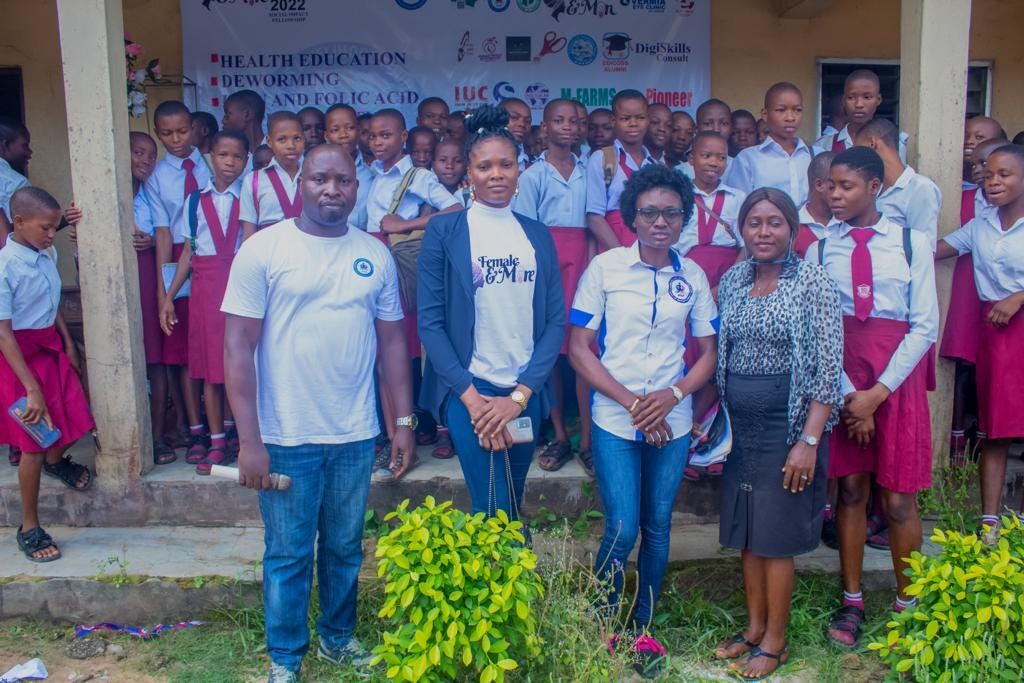
According to Bangwell, FAM conducts an assessment at the end of every module, and more than 90 percent of participants agree that self-esteem is a challenge they experience, and they would be better positioned to assert themselves, if their confidence and self-esteem were boosted. FAM uses this data to draw attention to a previously overlooked issue. Although the $1,000 grant award and exchange programme have been beneficial to the young girls, there is no sustainable funding for these activities.
Nigeria still has a long way to go in closing the gender equality gap and achieving Sustainable Development Goal target 5.5, however, this will require an early start to developing young girls to be confident because they are the future female leaders.


